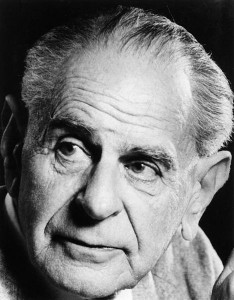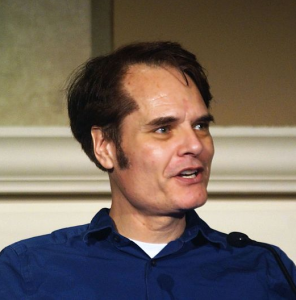You have probably all heard how religion is the enemy of science. Let me say something you may not have heard: Naturalism represents an equally dangerous foe for the scientific enterprise. How can that be, you ask? Science is a naturalistic enterprise, isn’t it? Well, yes and no. Science is what we call methodologically naturalist in that it “assum[es] naturalism in working methods, without necessarily considering naturalism as an absolute truth with philosophical entailments.”[ref]Naturalism (Wikipedia)[/ref] Hence the old recognition that science cannot answer all of our questions as human beings, nor did it ever intend to. However, there are those who take naturalism beyond the realm of science and into the metaphysical[ref]I use the following definition of metaphysical: “of or relating to the transcendent or to a reality beyond what is perceptible to the senses” from Merriam-Webster. Metaphysics thus consists of anything non-empirical in character. Since naturalism most often entails the view that every claim must be empirically verifiable, naturalists generally reject the whole of traditional metaphysics, committing it “to the flames” as Hume famously declared.[/ref], stating that nothing exists beyond our physical world. They are known unsurprisingly as metaphysical naturalists.
Since science is methodologically naturalist, it has become natural (pun intended) for many metaphysical naturalists to adopt science as their standard of belief. In keeping with that adoption, many naturalists see it as their duty to defend science against the supernatural. I contend that naturalists, in trying to defend science, threaten instead to introduce the evils of the worst religious orthodoxy into science. I believe this outcome can occur for two main reasons:
First, many naturalists substitute science as their source of metaphysical belief since they lack any metaphysical claims of their own aside from rejecting all metaphysical claims. People are generally resistant to their beliefs being challenged, and so if people’s metaphysical beliefs are inextricably tied to their scientific beliefs, they are going to be much more dogmatic about scientific theories. And where, for example, a Christian might be content to simply reject science, leaving himself or herself sadly bereft of scientific knowledge but science itself fine, the naturalist, deriving their knowledge from science alone, has no choice but to try and warp science into not just an empirical expression but a metaphysical one as well–an orthodoxy about the nature of existence. This orthodoxy most often takes the form of believing that all reliable human experiences and knowledge must be reducible to an empirical level. Naturalistic orthodoxy strikes at heart of science itself by trying to make science into the new orthodoxy and thereby destroy the questioning and theorizing that makes the scientific enterprise possible.

The signs of this orthodoxy are clear enough in how people speak about science. We may rightly say that scientific theories are well-tested and highly explanatory. We may not say they are proven or true, and yet many people choose these exact words. I cannot state this point emphatically enough. Anyone who says science proves theories is making an anti-scientific statement. Karl Popper, the famous philosopher of science, played a large role in asserting this view of science:
Scientific theories, for [Popper], are not inductively inferred from experience, nor is scientific experimentation carried out with a view to verifying or finally establishing the truth of theories; rather, all knowledge is provisional, conjectural, hypothetical—we can never finally prove our scientific theories, we can merely (provisionally) confirm or (conclusively) refute them; hence at any given time we have to choose between the potentially infinite number of theories which will explain the set of phenomena under investigation. Faced with this choice, we can only eliminate those theories which are demonstrably false, and rationally choose between the remaining, unfalsified theories. Hence Popper’s emphasis on the importance of the critical spirit to science—for him critical thinking is the very essence of rationality. For it is only by critical thought that we can eliminate false theories, and determine which of the remaining theories is the best available one, in the sense of possessing the highest level of explanatory force and predictive power.[ref]Karl Popper and Growth of Human Knowledge (Stanford Encyclopedia of Philosophy)[/ref]
My pronouncement may seem like a semantics game–people conceivably could use ‘proven’ as shorthand for the much bulkier ‘well-tested and highly explanatory’–but I believe a view more worrying is at play when people state, “Science has proven this theory.” They are using science not as an expression of our current best understanding of the natural world, but as the only understanding they believe we will ever have about existence.

Believing science has shown us the only true understanding of the world leads to yet another problem: People begin to conflate accepting scientific conclusions as a measure of how well you understand science. Since science is the truth, if you do not accept it, that must mean you simply do not understand it. This is another anti-scientific attitude. As Dan Kahan rightly points out in the comments sections of his “Cultural Cognition” blog[ref]How religiosity and science literacy interact: Evolution & science literacy part 2. (The Cultural Cognition Project at Yale Law School)[/ref], a brief study of scientific history reveals the necessity of decoupling understanding theories from accepting theories in order to produce new scientific theories. Dr. Kahan cites how Einstein needed to understand and yet reject Newtonian physics to come up with relativity, just as proponents of quantum physics needed to understand and yet reject relativity to come up with quantum physics. Orthodoxy does not allow you to decouple understanding and acceptance: If the final truth has been discovered, you only reject it for lack of understanding.
Second, for some naturalists, their strongest commitment is to naturalism, not science, and therefore they will be highly opposed to any scientific theory that conflicts with naturalism or gives credence to supernatural claims. A good example of this point is the Steady State Theory. Steady State Theory was a popular theory in the early to mid 20th century and stated that the universe has always existed, in contrast to the Big Bang theory which has a clear beginning of the universe. As PBS puts mildly, “[t]his struck a philosophical chord with a number of scientists, and the steady-state theory gained many adherents in the 1950s and 1960s.”[ref]Steady-State Universe (PBS.org)[/ref] The theory was only abandoned after a long struggle and discovery of strong falsifying evidence in part due to the popular philosophical implications of the theory among naturalist scientists.
To be fair, problems can and have arisen when scientific theories conflict (or seemingly conflict) with supernatural claims. My point here is not to set up a competition between supernaturalism and naturalism over who is the “true” defender of science. Neither group is. The true defender of science is anyone who recognizes that any orthodoxy is a threat to the scientific enterprise. Thus Karl Popper invites us all to become defenders of science, not by what particular metaphysical beliefs we hold or reject, but by upholding this opposition to orthodoxy in our quest for greater understanding of the world in which we live:
I hope that my proposals may be acceptable to those who value not only logical rigour but also freedom from dogmatism; who seek practical applicability, but are even more attracted by the adventure of science, and by discoveries, which again and again confront us with new and unexpected questions, challenging us to try out new and hitherto undreamed-of answers.[ref]The Logic of Scientific Discovery. Karl Popper. 1958.[/ref]
As a final note, I cannot state enough how large of a role Dan Kahan played in getting my mind turning on this subject. I have shared Karl Popper’s views on the scientific enterprise for some time, but Dan Kahan helped me start connecting my understanding of the philosophy of science to modern day issues in science. His blog can be found here.
“we can never finally prove our scientific theories, we can merely (provisionally) confirm or (conclusively) refute them; hence at any given time we have to choose between the potentially infinite number of theories which will explain the set of phenomena under investigation. Faced with this choice, we can only eliminate those theories which are demonstrably false, and rationally choose between the remaining, unfalsified theories. ”
I was frustratingly reminded of this the other day. I was trying to prove that a random number generator is really random. To do this, I needed a number to be exactly 1. There is no way to use the scientific method to show that a number is exactly 1. All I can do is show that it’s most likely in the vicinity of 1. Sigh.
I’m told Stanlaw Lem’s Solaris was a (necessarily) oblique critique of this sort of dogmatism in the Soviet scientific establishment, from which we have the term Lysenkoism. This is a bit different from the problem you’re describing, in which a pre-existing ideology makes challenging certain scientific ideas preferred by that ideology dangerous, but the warping of results is presumably similar.
It’s unfortunate that I find it difficult to read this sort of concern from most writers without fearing that it is a gentle way of introducing exactly what it purports to be concerned about: a conclusion that global climate change isn’t real which is required by ideology rather than disinterested pursuit of evidence.
This is an excellent post and it reminds me of the importance of being intellectually humble at all times, even when you are quite certain you are right. There are simply too many things we don’t know that we don’t know (I think Nathaniel wrote a post about this once). But isn’t this what makes science and discovery so exciting?
Scientists tend to oppose distinguishing between science and naturalism because discussing the division sows doubt in science and divides a minority party.
Non-scientists who hear “science can’t prove things” often turn to old books that claim they can prove things with certainty. Using “proven” as shorthand for “well-tested and highly explanatory” is a product of exasperation and laziness, the latter on the part of both the speaker and listener.
Since the majority of the world believes in various superstitions, scientists want to stick with anyone who has similar if slightly-flawed beliefs. The same behavior is seen in political moderates who glad-hand the extremists on the far wing of their party.
Most scientists who use unscientific words like “proven” know they are slightly incorrect. They, me included, think it’s worth being slightly wrong if it brings people out of being wildly, demonstrably wrong in their understanding of the universe. The band saw comes before sandpaper.
So, in short, it’s cool to be less-than-perfectly-accurate if it also stops people from being religious. Good to hear it enunciated so clearly.
Nope: in other words, it’s reasonable to use other people’s incorrect standards of “truth” or “proof” in order to get them to accept what is probably true over what is definitely false.
It’s cooler to say “that number is exactly 1” than it is to say “that number has magical powers.” There are degrees of wrongness.
I’d compare it to teaching children simple lessons, like always sharing. Later in life they will learn which things to share, then take some econ classes, etc. It makes no sense to start out with the most advanced, precise principles.
Haha Reece you make me laugh. I miss seeing you comment on Facebook.
And from this train of thought we get the likes of Steady State Theory. Proper scientific practice be damned, metaphysical naturalism is the truth!
I miss you, bro :)